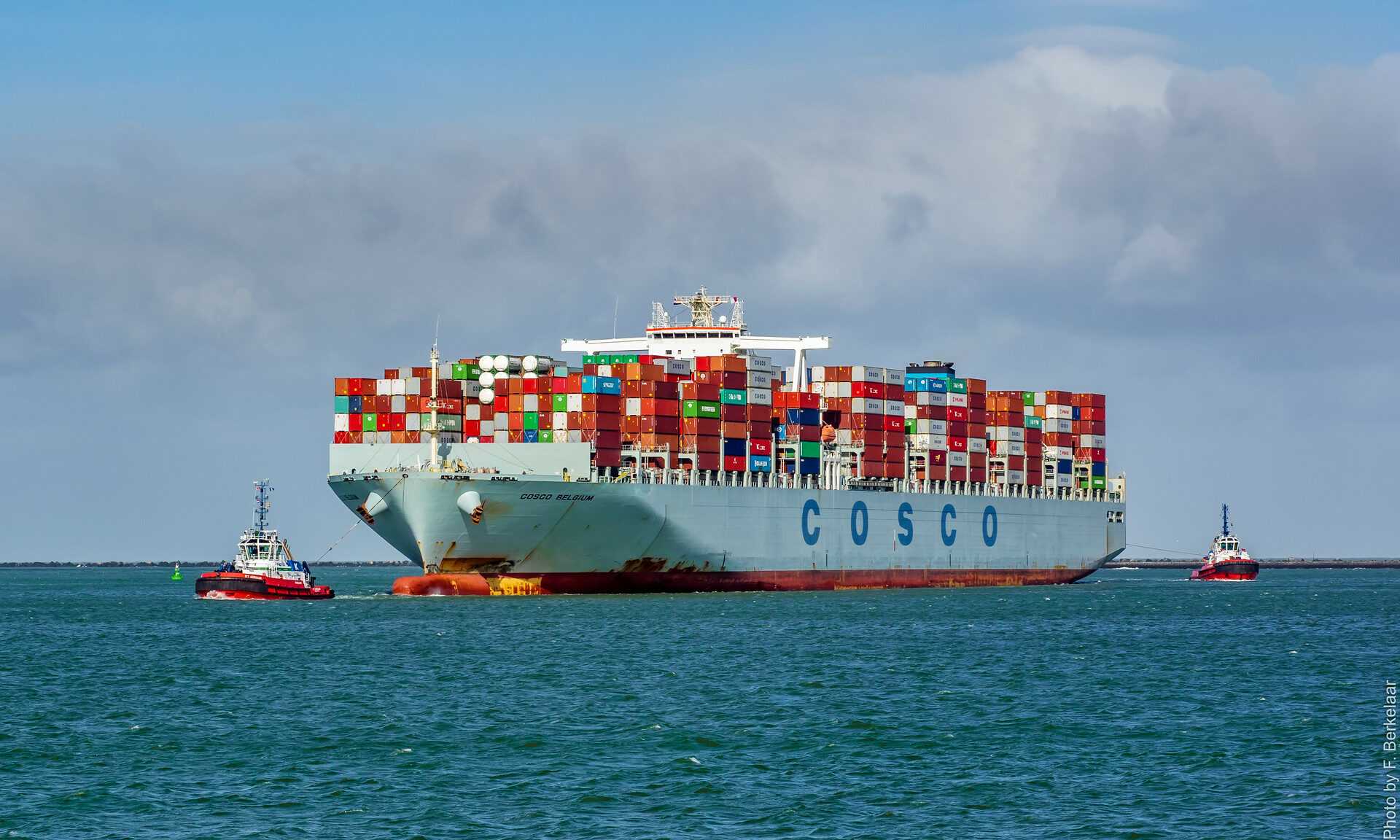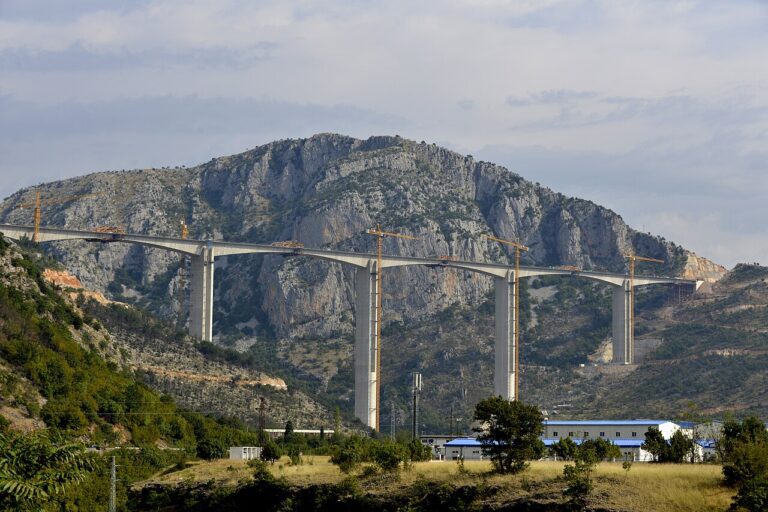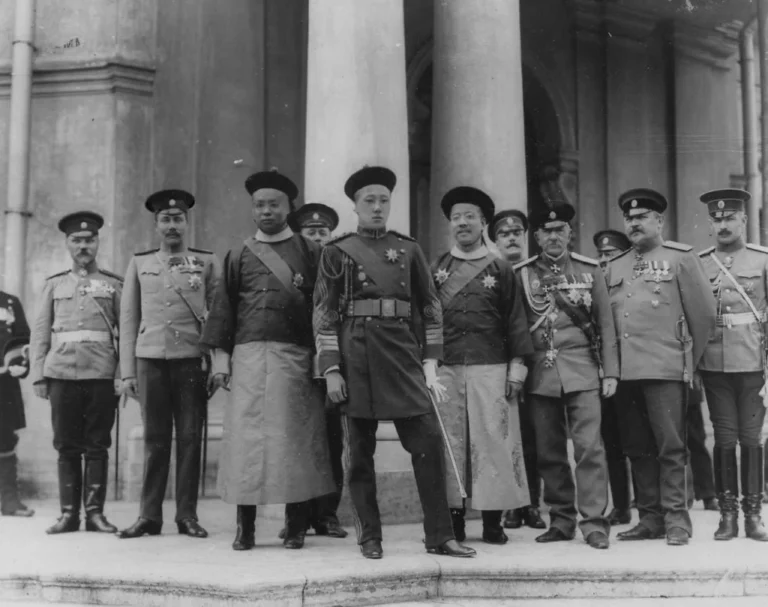Chinese Stakes in European Ports: Geopolitical Threat or Mere Business Venture?

Chinese investments in European ports have sparked fears and a debate over the obligations of business to deal with matters of national security. Understanding the economic and political importance of ports, and the actors involved in Chinese investments, can help to evaluate their economic and political impacts in a way that is strategically minded but does not shut the door for business.
This article is part of a series of articles authored by young, aspiring China scholars under the Future CHOICE initiative.
The Hamburg Deal
In October 2022, the purchase of 24.9 percent of the shares in the Tollerort terminal in the port of Hamburg made headlines not only in Germany but throughout the western world. After the deal between the terminal’s operating company and the Chinese state-owned company COSCO was met with opposition from the relevant German ministries, the chancellor’s office led by Olaf Scholz (SPD) intervened and pushed through a slightly modified version of the original deal against considerable national and international resistance.
Internally, opposition came from various ministries from across all three governing parties (SPD, FDP, Greens), with concerns expressed, for example, by the ministries of economy, foreign affairs, finance, and defense as well as the Bundestag’s Foreign Affairs Committee. Internationally, key German partners voiced concern, both within the EU and across the Atlantic. In addition, even the European Commission pointed out the risks related to the deal.
The Commission warned that sensitive information about the port’s business operation could make it into Chinese hands if Germany allowed the investment, especially considering the fact that the port of Hamburg does not only have civil but also military importance.
In the end, the deal moved ahead despite the concerns. The political-strategic view espoused by the critics contrasts with a pure business view of the transaction. For the port, and by extension the city and state of Hamburg, the deal represented a welcome contribution into the local economy. From the perspective of the local government, currently headed by the First Lord Mayor Peter Tschentscher (SPD), who leads an SPD/Greens coalition, there were multiple reasons to welcome the investment.
According to the former Chief Editor of Handelsblatt Gabor Steingart, COSCO’s investment would not only be a cash injection but could also make the port more attractive for Chinese shipping companies and improve its position in the competition with other nearby ports such as Rotterdam. More broadly, it has also been argued that due to the many German companies’ outsized dependence on China, neither the German government nor the German economy has any interest in upsetting a Chinese state-owned company and, by extension, Beijing, by blocking the deal.
The Actors and Their Stakes
Why so much commotion about investment in a port? In the current global economy, ports represent the gate to the most cost-effective form of transporting merchandise and form the backbone of modern supply chains due to their integration in extensive infrastructural networks. At the same time, ports also possess political-strategic importance, especially when they are an essential part of the national and state transport network and supply chains as well as the national defense system.
It is thus clear that any investment in ports should not only be seen through the prism of economic involvement but also through strategic lenses. That is especially the case if actors from a country seen by the EU as a strategic competitor are involved.
Chinese involvement in the European ports is by no means limited to Hamburg. Both Chinese state-owned and private enterprises are financially engaged in European ports. The most prominent one is China COSCO Shipping, the world’s largest shipping company owned by the Chinese government.
COSCO is the fifth largest terminal operator in the world and a major investor in European ports. The company owns minority stakes in container terminals in Antwerp (Belgium), Las Palmas (Spain), and Rotterdam (Netherlands) and control/majority stakes in container terminals in Valencia (Spain), Bilbao (Spain), and Zeebrugge (Belgium). The company is also a majority owner of the port authority of the port of Piraeus. COSCO started investing in European port terminals already in 2004, with activity peaking at around 2016.
Besides COSCO, there are two key companies of interest. First is China Merchants Group, also a state-owned company like COSCO, but based in Hong Kong. Its subsidiary, China Merchants Port Holding (CMP), is the sixth largest port terminal operator in the world and owns a 49 percent stake in Terminal Link since 2013. Through Terminal Link, CMP owns minority stakes in terminals in Rotterdam (Netherlands), Antwerp (Belgium), Le Havre (France), Thessaloniki (Greece), and Marsaxlokk (Malta). A high point of CMP’s activity was the acquisition of ten terminals through Terminal Link from the French enterprise CMA CGM in 2019.
Another major player is CK Hutchison Holdings, a conglomerate registered in the Cayman Islands but headquartered in Hong Kong. Its subsidiary, Hutchison Holdings Ports (HPS), is the second largest port terminal operator in the world, holding stakes in terminals in Rotterdam (Netherlands), Stockholm (Sweden), Barcelona (Spain), Felixstowe (UK), Harwich (UK), Kent (UK), and Gdynia (Poland). The company also operates several inland terminals. Hutchison started buying into European port terminals as early as 1991 and has steadily continued to expand its portfolio of European ports.
To sum up, Chinese enterprises mostly invest in European ports by buying stakes in individual terminals. Their investments come both as majority and minority stakes. It is noteworthy that some investments, like the one in Felixstowe or Antwerp, significantly predate the announcement of the Belt and Road Initiative in 2013. A high point of activity was certainly between 2016 and 2019, though this can also just be interpreted as a continuation of an already existing portfolio strategy.
What Are the Risks?
To assess the influence of Chinese enterprises resulting from their stakes in European ports and terminals, a fundamental distinction must be made between majority stakes (which confer far-reaching power) and minority stakes (which only confer a right of co-determination). In the end, however, there are several key issues to consider regarding the Chinese owners’ influence.
First of all, there is a potential to alter the flow of goods from one European port to another. Enterprises like COSCO might redirect their traffic to ports or terminals they have a stake in, distorting the market.
Second, knowledge of the technical inner workings of European container terminals might be used as valuable intelligence and could also enable the disruption of shipping operations and supply chains.
Third, it is also conceivable that the Chinese shareholders will have a long-term influence on the further development of the port infrastructure and its connection to domestic transport networks. In the long term, this could offer a foreign power the opportunity to influence the development of European transport infrastructure to its benefit.
Since there are ample opportunities to exert influence through port ownership, these holdings are a potential geopolitical tool for Beijing, which can exert control over the activities of companies such as COSCO and marry their business expansion goals to its geopolitical objectives.
Looking at the larger picture, Chinese actors have not only acquired stakes in a wide variety of European strategic infrastructure such as ports, but through strategic industrial policy, China has also been able to capture large parts of the value chains critical to the European economy. China is also one of the main suppliers of raw materials needed in European industry. These factors combined give China the power to exert pressure on European states to align them with its economic and political interests.
Difficult but Necessary Balancing Act
Although Chinese investments in European ports could bring infrastructure improvements, job creation, and other economic benefits, which are especially attractive for the poorer regions in southern and south-eastern Europe, the geopolitical risk these investments pose should not be understated.
Due to the common market and the interconnectedness of European economies, the Chinese stakes in European strategic infrastructure can only be assessed on a European level. This risk has been identified by the EU and was recently discussed in the European Parliament in December 2022.
The European response to the strategic threat posed by Chinese investments includes the EU framework for FDI screening adopted in 2017. The framework harmonizes the FDI screening mechanisms of participating European countries and thus allows the EU to coordinate a response to Chinese investments, although it is the national governments who make the final call.
Another instrument that can be put to use is the regulation on distortive foreign subsidies, which would obligate foreign companies to notify the European Commission if their bit to obtain stakes in a European business is funded by subsidies from a foreign government. The regulation was approved late last year.
Currently, the EU is also moving ahead with the anti-coercion instrument to defend against economic coercion and extraterritorial sanctions.
But even considering all these efforts on the European level, the final decision will in many cases stay with the individual member states, which might value their own economic development more than the common European security interest. As the Hamburg case shows, a controversial deal thus might go ahead despite explicit concerns voiced by key actors.
Therefore, it is necessary to balance legitimate interests in forging investments that drive economic development in European countries with protecting European strategic infrastructure. This balancing act will be one of the defining European struggles of the years to come as it presses on the delicate balance of power between the European institutions and the individual member states.
Written by
Tim Hildebrandt
Tim Hildebrandt is a Ph.D. candidate in political science and economics at the University of Duisburg-Essen and a Research Associate at the Ruhr West University of Applied Sciences. His research focuses on the intersection of politics, economics, and geography.


